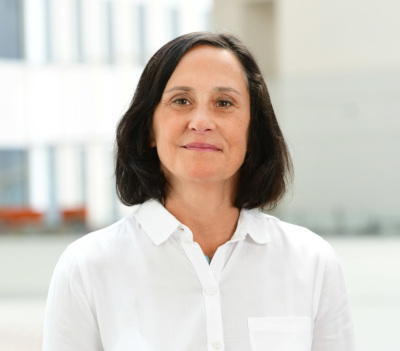Tamoa Calzadilla: 2024 John S. Carroll Journalist of the Year
Tamoa Calzadilla
Factchequeado
Miami


To recognize her fearless investigative reporting in her native Venezuela and her leadership in fact-checking for Spanish speakers in the U.S., the News Literacy Project named Calzadilla its 2024 John S. Carroll Journalist of the Year.
Alan C. Miller, founder and former CEO of NLP, called Calzadilla to tell her that she had been selected for the honor. “Initially, she was stunned and speechless. It took her several minutes to be able to express in words how much this means to her.”
“It’s a great honor,” she told Miller. “I’m an immigrant woman who had to leave her country. You never expect that you will receive an award like this. It has been a hard path as a professional, and personally. I am so grateful.”
Calzadilla has been a dedicated partner with NLP since 2022. She assisted in two election campaigns by recording Spanish-language content, providing translations of NLP resources and actively promoting National News Literacy Week. Earlier this year she participated in NLP’s first-ever Spanish-language event on election misinformation.
“I think news literacy should be required for high school curriculums,” she told NLP in a recorded interview.
Forced to flee Venezuela
An internationally recognized award-winning journalist, Calzadilla’s honors include the Maria Moors Cabot Special Citation from Columbia University and the Press and Society Institute and Transparency International in Latin America and the Caribbean prize for coverage of corruption in Latin America and the Caribbean. She was a Reynolds Journalism Institute fellow at the University of Missouri (2023-2024) and is a John S. Knight journalism fellow at Stanford University (2024-2025).
Raised in Caracas, Venezuela, Calzadilla discovered a love for journalism in college. “I think the journalism chose me,” the former engineering major said. Her investigative reporting exposed corruption and human rights violations, ”to give voice to people who don’t have a voice.”
“I went to the poor communities in my country. I covered a lot of stories in jails. But I loved that. When you understand the personal stories and the complex stories about the system and what is wrong, this kind of journalism was my passion for many years.”
Her coverage of government corruption and repression forced her to flee Venezuela with her family in 20I5 following the deepening of authoritarianism after the death of President Hugo Chávez in 2013. Calzadilla’s husband, a photojournalist, was briefly jailed on groundless claims of espionage, and someone broke into their apartment and stole her computer. “It was the moment we figured out we were in danger. We have two children. We have to go.”
They immigrated to the U.S., settling in Doral, Florida, near Miami, where Calzadilla worked as an investigative journalist with the Spanish language TV news outlet Univision. She covered major stories, including the Panama Papers, a massive leak of financial and legal records that exposed a system of crime and corruption hidden by secretive offshore companies.
Disinformation in Spanish-speaking communities
With the rise of mis- and disinformation targeting Latino and Hispanic communities, she led elDetector of Univision Noticias, the first Spanish-language fact-checking platform in the U.S., and later joined Factchequeado. As its editor in chief, she leads a team that fact-checks digital content, educates their audience on journalism standards and election practices and “prebunks” trending misinformation topics and tactics before people encounter them.
While misinformation is a problem for everyone, Latino and Hispanic communities can be more vulnerable to bad actors, Calzadilla explained. “For Spanish speakers, there are fewer reputable news sources and just three fact-checking organizations.”
Her team already is contending with election-related disinformation similar to what occurred during the 2020 election season. “We have to be prepared because we’ve started to see the same kind of disinformation that we’ve seen before or during electoral processes.”
The work she does to combat misinformation with partner organizations, and especially NLP, is deeply important to her. “I love the idea of collaborating to do something powerful. It’s very important to reach young people and give the students the tools and knowledge. We will be much better in general and in our community. Bilingual students are key in this process.”
About the award
Named for one of the most revered newspaper editors of his generation, the John S. Carroll Journalist of the Year Award is given annually to journalists who have contributed significantly to NLP and its mission. The honorees are selected by a committee of NLP board members and staff. During an acclaimed journalism career spanning four decades, Carroll was the editor of three major U.S. newspapers — the Lexington (Kentucky) Herald-Leader, The Baltimore Sun and the Los Angeles Times. He was a founding member of NLP’s board and served as its chair for four years until shortly before his death in 2015.
